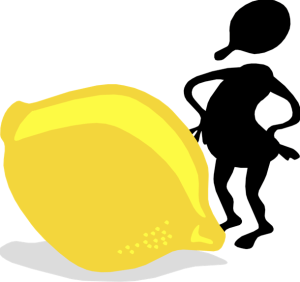If you seek innovation and breakthroughs during your group meetings or workshops, do not clone yourself.
Constantly strive to blend and mix various ingredients that stimulate participants, such as tactile stimulation. Prepare to keep all of your participants stimulated. We call it the “Zen” of the experience—that is appealing to all the senses to stimulate and maintain vibrancy, including chenille stems.
Tactile Stimulations Adds to the Zen of the Experience
As you know, moods and judgments can be influenced by unrelated experiences of sight and sound. For example, we typically feel happier on sunny days and perhaps more relaxed when listening to certain types of music. Research shows that heat and humidity provoke more fighting, violence, and even riots.
Visual Stimulation
You are encouraged to use multiple colors to break up the monotony of a single color hue. You are encouraged to use icons and illustrations to break up the monotony of recording notes purely in the narrative format. Likewise, use matrices, tables, and templates to stimulate your participants.
Music Helps a Lot
Our popular break timers blend a musical background that could best be described as eclectic—everything, from Frank to Frank as in Frank Sinatra to Frank Zappa. We even suggest the use of Purell®, citrus fruit, and fresh air to alert participants who may be dozing off. Likewise, we encourage the use of 30-30, or 30-second stand-up and stretch breaks every 30 minutes.
Tactile Stimulation Works
In a similar fashion, we have used chenille stems (aka pipe cleaners) and foam stickers for nearly twenty years now. While not all participants use them, research by Joshua Ackerman, Christopher Nocera, and John Bargh shows that the weight, texture, and hardness of the things we touch are unconsciously factored into decisions that have nothing to do with what is being touched. Tactile stimulation works.
Most people associate smoothness and roughness with ease and difficulty. Note the expressions “smooth sailing” and “rough seas ahead.” According to the researchers, people who completed a puzzle with pieces covered in sandpaper described their interaction as more difficult and awkward than those with smooth puzzles. Chenille stems offer both silky smoothness and flexibility, characteristics we seek from our participants and meetings. Let the chenille stems make everything seem better, they work, and research confirms why.
______
Don’t ruin your career by hosting bad meetings. Sign up for a workshop or send this to someone who should. MGRUSH workshops focus on meeting design and practice. Each person practices tools, methods, and activities every day during the week. Therefore, while some call this immersion, we call it the road to building high-value facilitation skills.
Our workshops also provide a superb way to earn up to 40 SEUs from the Scrum Alliance, 40 CDUs from IIBA, 40 Continuous Learning Points (CLPs) based on Federal Acquisition Certification Continuous Professional Learning Requirements using Training and Education activities, 40 Professional Development Units (PDUs) from SAVE International, as well as 4.0 CEUs for other professions. (See workshop and Reference Manual descriptions for details.)
Want a free 10-minute break timer? Sign up for our once-monthly newsletter HERE and receive a timer along with four other of our favorite facilitation tools, free.

Terrence Metz, president of MG RUSH Facilitation Training, was just 22-years-old and working as a Sales Engineer at Honeywell when he recognized a widespread problem—most meetings were ineffective and poorly led, wasting both time and company resources. However, he also observed meetings that worked. What set them apart? A well-prepared leader who structured the session to ensure participants contributed meaningfully and achieved clear outcomes.
Throughout his career, Metz, who earned an MBA from Kellogg (Northwestern University) experienced and also trained in various facilitation techniques. In 2004, he purchased MG RUSH where he shifted his focus toward improving established meeting designs and building a curriculum that would teach others how to lead, facilitate, and structure meetings that drive results. His expertise in training world-class facilitators led to the 2020 publication of Meetings That Get Results: A Guide to Building Better Meetings, a comprehensive resource on effectively building consensus.
Grounded in the principle that “nobody is smarter than everybody,” the book details the why, what, and how of building consensus when making decisions, planning, and solving problems. Along with a Participant’s Guide and supplemental workshops, it supports learning from foundational awareness to professional certification.
Metz’s first book, Change or Die: A Business Process Improvement Manual, tackled the challenges of process optimization. His upcoming book, Catalyst: Facilitating Innovation, focuses on meetings and workshops that don’t simply end when time runs out but conclude with actionable next steps and clear assignments—ensuring progress beyond discussions and ideas.




